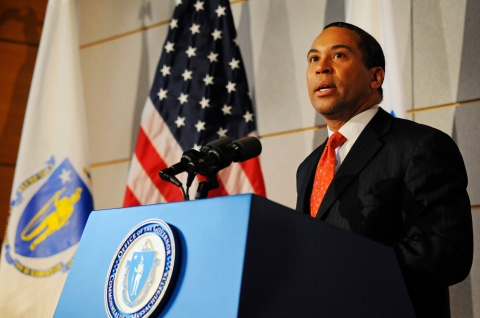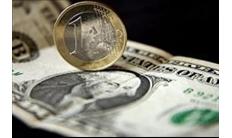Posts Tagged ‘Asian’
Pak cancels hockey match
Posted on: January 3, 2009

Pakistan on Friday (January 2) decided not to send its hockey and squash teams to India citing security concerns for players. The Pakistan hockey team was supposed to take part in the four-nation Punjab Gold Cup, scheduled to start in Chandigarh from January 31, while the squash team was to defend its Asian Junior title in Chennai. The tournament was supposed to start from January 16.
However, the decision to cancel the hockey team’s trip was taken after Pakistan was replaced by New Zealand in the double-leg tournament that also features Beijing Olympic gold medallist Germany, the Netherlands, besides hosts India.
“The hockey and squash federations had applied for clearance to travel to India which we have not given as we have security concerns for our sportsmen and women in India,” Pakistan sports minister Aftab Shah Jillani said.
He said due to the existing tension between the two countries, the ministry thought it prudent not to send the teams to India. “Until the relations and conditions improve between the two countries we don’t think it is wise to send our teams there. They are security threats,” Jillani said.
However, sports secretary Ashraf Khan said the decision does not mean out that Pakistan has suspended sporting ties with India. “I wouldn’t say we have suspended sporting ties with India. We are willing to play India in any sport at a neutral venue,” Khan said.
“Our only concern at this stage was that they were genuine apprehensions about the security of our players if they went to India given the conditions in the region. But it is not a suspension of sporting ties,” Khan insisted. Khan also said that due to the prevalent situation between the two countries, the government felt that if Pakistan teams had travelled to India, they would have not been able to give off their best.
However, there’s a strong belief that stopping the hockey and squash teams to travel across the border could be a retaliatory gesture since the Indian government had earlier decided against sending its cricket team to Pakistan in the aftermath of the Mumbai terror attacks.
Asian and Pacific stock exchanges were mixed on the first trading day of the new year, with Hong Kong and South Korean markets showing gains Friday and Australia slumping.
The Hang Seng index in Hong Kong was up 2.22 percent at midday, while Seoul’s KOSPI climbed 1.69 percent. The All Ordinaries index in Sydney had dipped about 0.69 percent by mid-afternoon, however.Tokyo’s stock exchange remained closed for the holiday Friday. Japan’s benchmark Nikkei index closed Tuesday down 42.1 percent for the year.
Analysts expect 2009 to bring another bumpy ride for the global economy, with the world’s major economies — the United States, Japan and the European Union “Eurozone” countries — now officially in recession.
Economic plan
Posted on: December 13, 2008

The leaders of three of Asia’s biggest economies have vowed to work more closely together to reduce the damage caused by the global financial crisis.
Japan and China’s prime ministers and the South Korean president – meeting in Japan – agreed to boost trade and greatly increase currency swaps.
China’s Wen Jiabao called the summit, the first of its kind, a “milestone”.
He said such co-operation would “have real significance” as the crisis impacted on economies around the world.
The North Asian nations, former enemies, have held talks on the sidelines of international meetings, but this is their first independent trilateral summit.
“It is quite a milestone to hold a stand-alone China-Japan-South Korea summit,” Mr Wen said as he opened talks with Japanese Prime Minister Taro Aso and South Korean President Lee Myung-bak in the southern city of Fukuoka.
Swap facilities
The Duncan Bartlett in Tokyo says China, Japan and South Korea are closely intertwined economically and their leaders regard co-operation with their neighbours as a vital means of lifting the East Asian region out of its current financial malaise.
In a joint statement, the leaders said that Asia was “expected to play a role as the centre of world economic growth in order to reverse the downward trend of the world economy”.
The countries said they planned to increase the amount of money swapped between them through the Chiang Mai Initiative – a move which should benefit South Korea especially, as the won has lost a third of its value since the start of the year.
Our correspondent says the nations believe the swaps will prevent a repeat of the situation 11 years ago when sudden slides in currency values triggered a major financial crisis in Asia.
The three men also called for an urgent injection of capital into the Asian Development Bank.
Ahead of the talks, the South Korean central bank announced in a statement that it had increased its bilateral swap facility with the Bank of Japan to $20bn (£13bn), and a similar facility with the People’s Bank of China to $26bn.
Japan is also trying to put aside its past differences with China, partly because it was trade between them that helped pull Japan out of its last prolonged recession during the 1990s, our correspondent says.
All three countries – which account for 75% of the region’s economy and two-thirds of its trade – have announced major individual economic stimulus packages in recent months.
On Friday, the Japanese government increased by 23 trillion yen ($255bn) its stimulus plan, more than half of which will be used to bring stability to the financial markets. It follows a 27 trillion-yen package in October.
“This is a great global recession which comes once in a hundred years,” Mr Aso said. “But by taking appropriate measures without any delay, we can minimise the impact.”
Earlier this week, China revealed that its exports had fallen for the first time in seven years. However, it still reported a record monthly trade surplus.
Beijing launched a four trillion yuan ($586bn) stimulus plan last month, and on Wednesday pledged to boost public spending and cut taxes.
South Korea, the hardest hit by the financial crisis, meanwhile offered $130bn of guarantees on foreign-currency borrowing and liquidity to its banks.
At a separate meeting on Saturday, the South Korean and Japanese leaders condemned North Korea for showing an “unco-operative attitude” in the latest round of six-party talks aimed at dismantling its nuclear disarmament programme in Beijing this week.
Indian rupee vs us dollar
Posted on: December 11, 2008
 In fairly active trade at the Interbank Foreign Exchange (Forex) market, the local unit opened sharply higher at 49.18/20 a dollar from the previous close of 49.58/59.
In fairly active trade at the Interbank Foreign Exchange (Forex) market, the local unit opened sharply higher at 49.18/20 a dollar from the previous close of 49.58/59.
Initially, it touched the day’s low of 49.35 on some dollar buying by oil refiners.
But a spurt in the Sensex after the government unveiled a multi-crore stimulus package for the economy and dollar selling by banks on expectations of a further fall in the greenback helped the rupee to rally smartly, a forex dealer said.
Some stability in most of the Asian stock markets after the announcement of the stimulus packages by many developed as well as developing countries might have brought some relief in the market.
As a result, the Sensex flared up by another 492 points, or 5.37 per cent, while Asian indices ended the day with a gain between 2.0 per cent and 5.6 per cent.
Foreign funds were also buyers in the past few days and looking at the stability in the share markets, they expected to invest more at the current lower levels in the coming days, which also boosted the rupee sentiment.
The rupee breached the 49 level and touched a high of 48.89 before concluding the day at 48.98/49.00, a rise of 1.21 per cent.
Meanwhile, the RBI fixed the reference rate for the dollar at Rs 49.12 and for the single European currency at Rs 63.52.
The rupee premiums on the forward dollar improved further on sustained paying pressure from banks and corporates.
The benchmark six-month forward dollar premium payable in May ended at 79-82 paise, higher from 71-74 paise on Monday and the far-forwards maturing in November also finished up at 111-114 paise from 100-103 paise, previously.
In cross-currency trade, the rupee recovered sharply against the pound sterling and the euro and remained firm against the Japanese yen.
The domestic currency surged against the pound sterling to end the day at Rs 72.44/46 from the previous close of Rs 73.92/94 and also recouped against the single European currency to Rs 63.34/36 per euro from the last close of Rs 63.84/86 per euro.
The rupee, however, improved further against the Japanese yen to Rs 52.78/80 per 100 yen from Monday’s close of Rs 53.11/13 per 100 yen.










Recent Comments